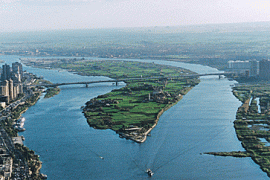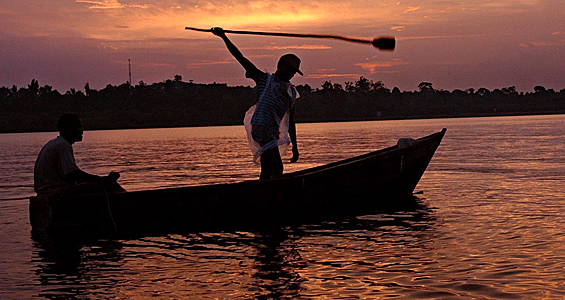Contention on the Nile
Ten countries lie along the Nile River Basin, but can they agree on equitable water-sharing?

 |
| Lake Victoria is the chief source of the Nile, the world’s longest river [EPA] |
Nine out of the ten African nations that share the Nile Basin have been pressuring Egypt for decades to help form a permanent body to oversee water allocation along the 6,741km Nile, the world’s longest river.
They say inequitable rights to Nile waters have caused resentment and tensions among them for years. At a conference in Alexandria, Egypt, in late July, the majority of the member countries have been pushing to draft a new water-sharing agreement.
Keep reading
list of 4 itemsWorld’s coral reefs face global bleaching crisis
Why is Germany maintaining economic ties with China?
Australia’s Great Barrier Reef suffers worst bleaching on record
Egypt, however, has continued to resist such moves citing a 1929 agreement signed with Britain, acting on behalf of its then east African colonies, which gave Cairo the right to effectively veto any upstream projects.
A later 1959 accord between Egypt and Sudan awarded Egypt an annual 55.5 billion cubic metres of Nile water, the largest share of any country along the river.
Talks in Congo last month failed to reach an agreement over a new system of water sharing with Egypt refusing to reduce its share of Nile waters.
The Nile Basin Initiative was formally launched in 1999 “to develop the Nile Basin water resources in a sustainable and equitable way to ensure prosperity, security, and peace for all its peoples”. According to the UN, some 160 million live in riverine “basin” areas dependent on Nile waters.
Rapid population growth
But it still seems highly unlikely that Egypt, with a rapidly-growing population of 76 million people, will make any water concessions.
| The Nile River Basin |
|
|
A report released in July 2009 by the Egyptian cabinet’s Information and Decision Support Centre (IDSC) warned that the country’s water needs would surpass its resources by the year 2017.
Egyptian authorities say the country would need 86.2 billion cubic metres by 2017, a volume it cannot meet given its current resources: Only around six per cent of the geography is arable, with irrigation provided almost entirely by Nile waters.
In 2005, Egypt’s ministry of planning issued a report which said:
“The environmental situation is worsened by the rapid population growth, which puts a strain on Egypt’s natural resources. Egypt relies on the Nile for 97 per cent of its water resources in addition to 1.4 billion cubic metres rainwater.
“There has been a rapid decline in the per capita share of water in light of Egypt’s fixed Nile water quota, which is currently 55.5 billion cubic metres annually. Average annual per capita share, which was almost 1000 cubic metres in the early 1990s, will reach 600 cubic metres in 2020, and decline to 400 cubic metres by 2030 if the current birth rate continues.”
Nile Basin populations
The vast river runs through 10 African countries, but only Egypt and Sudan have fixed shares of water confirmed by international agreements.
The other basin countries think these agreements signed during the colonial period have become outdated and are in need of revision because they were initially drafted with foreign interests in mind.
Egypt says allocation of Nile waters should be proportionate to the population of Nile Basin countries, the extent of their agricultural terrain and the amount of rainfall recorded every year.
In 2003, Shiferaw Jarso, the then-Ethiopian minister of water resources, told a two-day summit on Africa’s water resources that utilisation of the Nile, among other major rivers in the continent, “has been a source of contention and conflict”.
International law experts have gone as far as predicting that should political and diplomatic negotiations fail, the only remaining option would be the use of military force. Others find such a notion unnecessarily alarmist.
The United Nations Development Programme expressed concern that conflict over water resources could expand into “water wars”.
 The source of the Nile, the longest river in the world, is Lake Victoria.
The source of the Nile, the longest river in the world, is Lake Victoria.